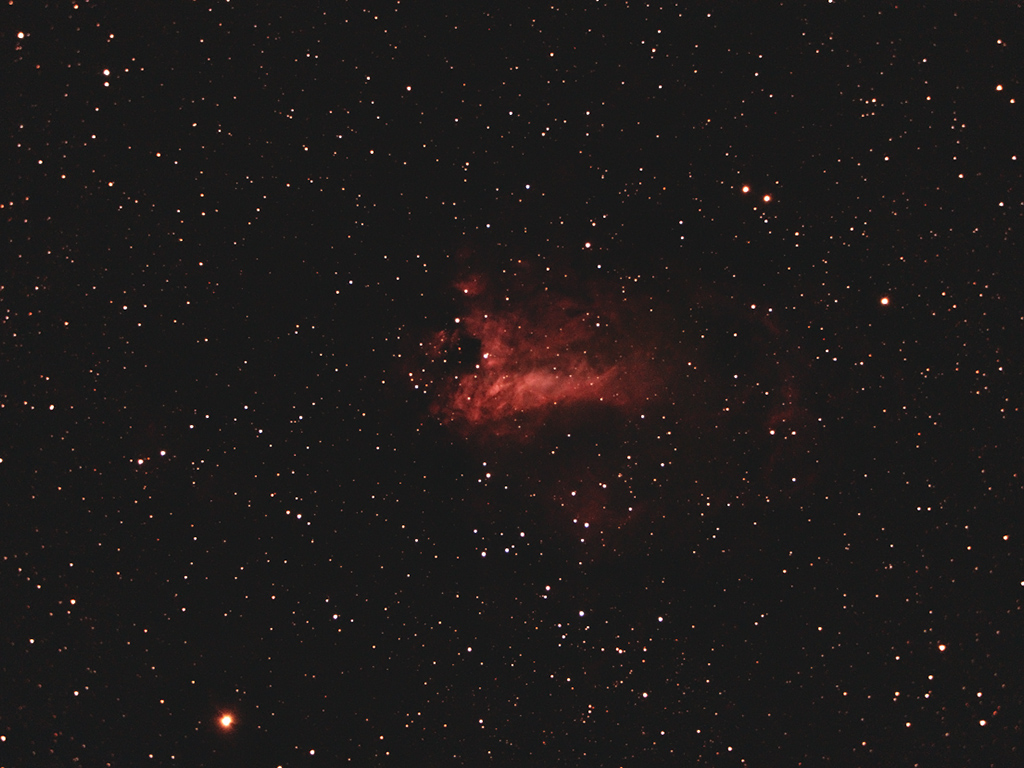
Telescope: LXD75 SC8 @ f/6.3, LX65 mount, altaz mode
Camera: Baader modified Canon 600Da, interval timer
Filter: GSO IR Blocking Filter
Guide scope: None
Exposure: 27x10sec, ISO 1600, saved as RAW
Darks: Internal (Long Exposure Noise Reduction On)
Flats: 32×1/25sec, Tee shirt flats taken at dusk
Average Light Pollution: Red zone, Bortle 8, poor transparency, moonlight
Lensed Sky Quality Meter: 17.5
Stacking: Mean with a 1-sigma clip.
White Balance: Nebulosity Automatic
Software: Deep Sky Stacker, Nebulosity, Photoshop
M17 is a stellar nursery lying about 6,000 light years away along the southern Milky Way in the Sagittarius-Carina arm of our galaxy. The soft red glow of this beautiful emission nebula comes from young stars embedded within the nebula setting the surrounding interstellar hydrogen aglow. M17 is one of the brightest emission nebula is the sky and is visible in small telescopes under dark skies. Even under urban skies the bright inner region of the nebula is a fairly easy target.
This is part of a series of images that I am taking to explore deepsky imaging using fairly basic equipment and techniques and my first example of imaging a nebula with this approach. I was very happy with the result and the field even shows some of the faint outer veil under relatively challenging imaging conditions.
M17 is currently well placed in the south as the sky darkens. (Photo credit: John Graham, 9/17/2021)
Recent Comments